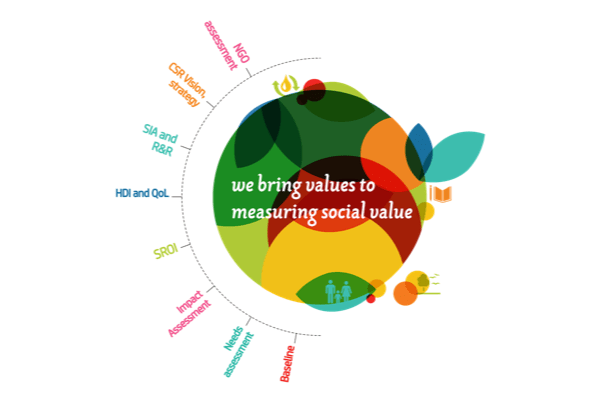

CESD brings the best expertise and experience in delivering better CSR by helping companies achieve measurable impacts. We work with companies to develop their CSR strategies aligned to organisational vision and business strategies, develop projects that serve aspirations and real needs of communities, measure impact of CSR activities, value social capital created, conduct customised NGO assessments, and recognise excellence in CSR.
CESD conducts cross-functional and multi-stakeholder workshops for companies to develop a long-term vision for social change, convert vision into specific KPIs and projects, develop strategy to accomplish the vision. Which developmental and geographical areas should companies get into? How does it align with priorities of business and sustainability? How does it leverage resources available with the company
and its partners?
A typical workshop is for two days. At the end of the workshop, participants have a
vision, KPIs, projects, and implementable action plan.
CESD undertakes baselines and needs assessments of project beneficiaries and concerned stakeholders. These studies are conducted using primary and secondary research techniques such as household surveys, interviews, and focus group discussions. Both qualitative and quantitative inputs are captured and analysed that provide vital inputs to CSR project design.
Value to company: Specific recommendations on community development projects with
a view to build on the positive image of the company amidst growing tensions between
community and government.
Impact measurement is important to understand the effectiveness of CSR projects. A well-designed impact study can also provide insights into stakeholder expectations and feedback on the projects conducted. Methodologies include control group comparisons, personal interviews, focus group discussions. Usually a combination of methodologies is deployed.
CESD also helps companies to measure change in Quality of Life or Human Development Indices with as a result of CSR and R&R interventions.
Value to company: Appreciation for CSR and R&R work from MoEFCC; identify improvements in implementation and long-term planning for projects.
CESD also helps with valuing social capital that a company creates via its CSR activities. Primarily using the framework of SROI, social capital valuation helps boards take informed decisions on social investments. SROI measures change in ways that are relevant to the people of the organisations that experience or contribute to it. It tells the story how change is being created by measuring social, environmental and economic outcomes, and uses monetary values to represent them.
CESD has been trained by Social Value International on measuring social value. The team has been helping leading organisations to measure social value using the SROI framework. CESD deploys principles of SROI as defined by Social Value International.
Value to company: Understand the value of social capital created, enable portfolio analysis and strategic decisions; identify strategies to maximise social value.
NGO Assessment is an initiative to identify credible NGOs to address the challenges faced by companies in selection of NGOs and in the allocation of CSR funds. It has started in response to demands raised by CII members companies, following the passing of the Companies Act 2013 which mandates companies to incur a given minimum expenditure on CSR activities.
The focus of NGO Assessment System is on identifying capacities and capabilities of NGOs to deliver the projects and it will be public utility, without compromising commercial obligations of companies. Stakeholder engagement, risk management, projects and human resources are the four key aspects of the framework. It is based on guidance and not on scoring.
Value to company: The company could appreciate capabilities and capacities of the
NGO with respect to their specific requirements for vocational skills development
programme.
CESD helps companies to develop CSR vision and strategy by aligning it with vision, mission and business strategy of the company. In the process identify resource availability and gaps, identify KPIs to measure and manage.
Value to company: Instilled thinking and culture of long-term sustainable CSR planning and practice; able to better manage ad-hoc and varied stakeholder expectations.
CII-ITC Sustainability Awards - CSR Domain Excellence recognise companies that have positively impacted both business and society by taking a strategic approach to CSR through collaborative programmes with government and civil society.
Over a period of six months, applicants undergo a rigorous evaluation process that is based on principles of business excellence. The findings of this assessment, presented in the form of a detailed Feedback Report to every applicant, further help applicants by providing insights that improve the impact of their sustainability initiatives and drive overall -performance by identifying opportunities for improvement.
About intervention
CESD brings the best expertise and experience in delivering better CSR by helping companies achieve measurable impacts. We work with companies to develop their CSR strategies aligned to organisational vision and business strategies, develop projects that serve aspirations and real needs of communities, measure impact of CSR activities, value social capital created, conduct customised NGO assessments, and recognise excellence in CSR.